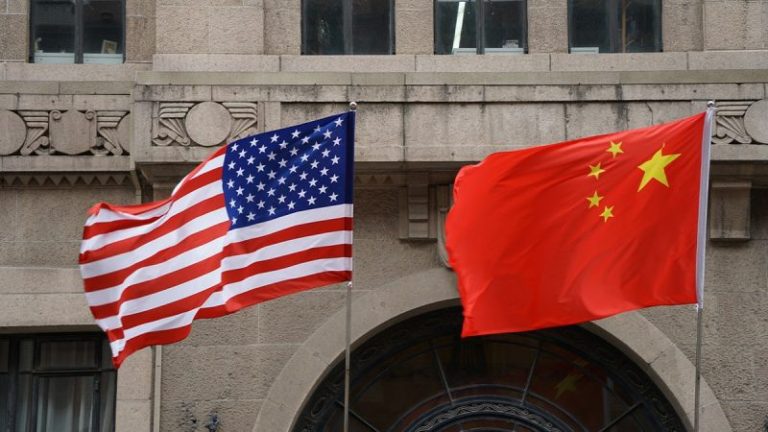When President Donald Trump returned to the White House in 2025, he faced the same formidable adversary that defined much of his first term: China. This time the stakes were even higher. The trade deficit with China had ballooned to roughly $300 billion, while IP protection, currency manipulation and predatory industrial and international development practices remained significant issues. And Beijing doubled down — weaponizing its control of rare earth minerals, tightening its grip on semiconductors and wielding economic coercion against U.S. allies from Australia to Lithuania.
Against this backdrop, Trump 47 adopted a two-pronged approach. On offense, the administration has kept maximum pressure on Beijing, staying firm on negotiation positions and refusing to trade away leverage until real concessions emerge. On defense, it has wielded tariffs not only as bargaining chips but as engines of industrial revival — reshoring supply chains, rebuilding America’s manufacturing base and hardening strategic alliances to reduce dependence on China.
These were not easy calls. Tariffs rattled markets. Pressure campaigns risked alienating partners. Yet the strategy has been to hold the line, play a long game and push forward until the U.S. secured fairer, reciprocal trade terms. In a world where semiconductors and rare earths are the new oil, this is about nothing less than U.S. national security.
I have seen firsthand how high-stakes these negotiations can be. As I recount in my forthcoming book, ‘A Seat at the Table,’ Chinese officials have long relied on psychological tactics, slow-walking responses through layers of bureaucracy, handing us last-minute drafts in Chinese — even removing chairs at negotiating tables. These are not trivial gestures. They are meant to unnerve, unsettle and push the U.S. team toward compromise.
The Trump response was simple but powerful: don’t flinch. In Beijing, when presented with a Chinese draft that ignored our work, Secretary Steven Mnuchin waved it away and insisted the talks proceed on the American document. When a chair was removed to show disrespect, we calmly got it back—without ever conceding authority.
That posture of confidence — staying the course under pressure — continues today in Trump 47. Tariffs are sharper, more targeted and higher than before; allied trade deals (Japan, South Korea, the EU) allow us to focus resources on China; and deadlines are extended when useful, but only on U.S. terms.
Critics say tariffs raise consumer prices. In the short term, they can. But the broader truth is that tariffs are tools to rewire incentives, drive investment back home, and ensure the United States does not remain vulnerable in sectors critical to survival. Already, the tariffs of Trump 47 are accelerating investment in domestic chip foundries, battery plants and energy infrastructure. They are also forcing hard conversations with allies about aligning supply chains — from rare earth processing in Australia to semiconductor alliances with Japan and the Netherlands.
When Beijing weaponized exports of gallium and graphite, vital for defense and electronics, Trump invoked the Defense Production Act and doubled down on Indo-Pacific partnerships. The message is clear: America will not be held hostage to coercion. Strategic autonomy requires resilience, even if it comes with short-term discomfort.
How do you stay steady when the stakes are so high, when the pressure is relentless? Stand aside Hans Morgenthau. For me, the source I found was the timeless wisdom of ‘Kedushas Levi,’ an 18th-century Chassidic work by Rabbi Levi Yitzchok of Berditchev.
The ‘Kedushas Levi’ teaches that challenges — no matter how overwhelming — are never insurmountable. ‘If you encounter an obstacle that is bigger than you, do not be fearful or frightened. With simple faith, what you fear will not harm you,’ it states. That teaching, echoing the Talmudic reality that the good Lord gives trials in proportion to a person’s strength, gave me composure when sprinting to translate a Chinese draft in a Beijing motorcade, or when facing off with officials determined to stall and delay.
It also teaches that truth, even when inconvenient, carries divine weight. When Chinese officials resisted opening their financial markets, I pointed out the obvious but often ignored truth: Chinese banks in the U.S. had seen double- and triple-digit growth, while U.S. banks in China struggled for even single digits. That argument broke through where posturing could not.
Negotiations with China will not be wrapped up overnight. But this is a contest of wills as much as economics. And here, the lessons of faith matter most. Facing giants, the Jewish tradition teaches, you do not shrink back. You lift your head high, stand on truth, and trust that what feels impossible can indeed be achieved.
That is how we approached China in Trump 45. That is how we are approaching China in Trump 47. And that is how America, with faith and fortitude, can win.

